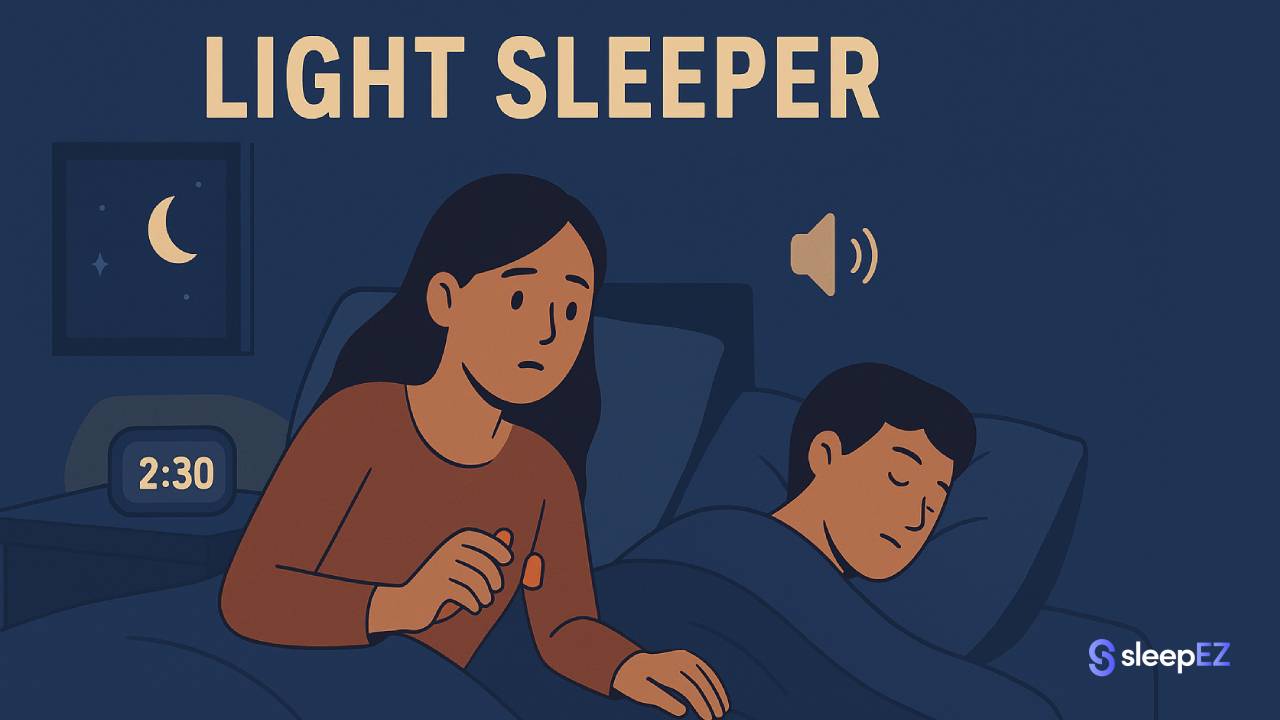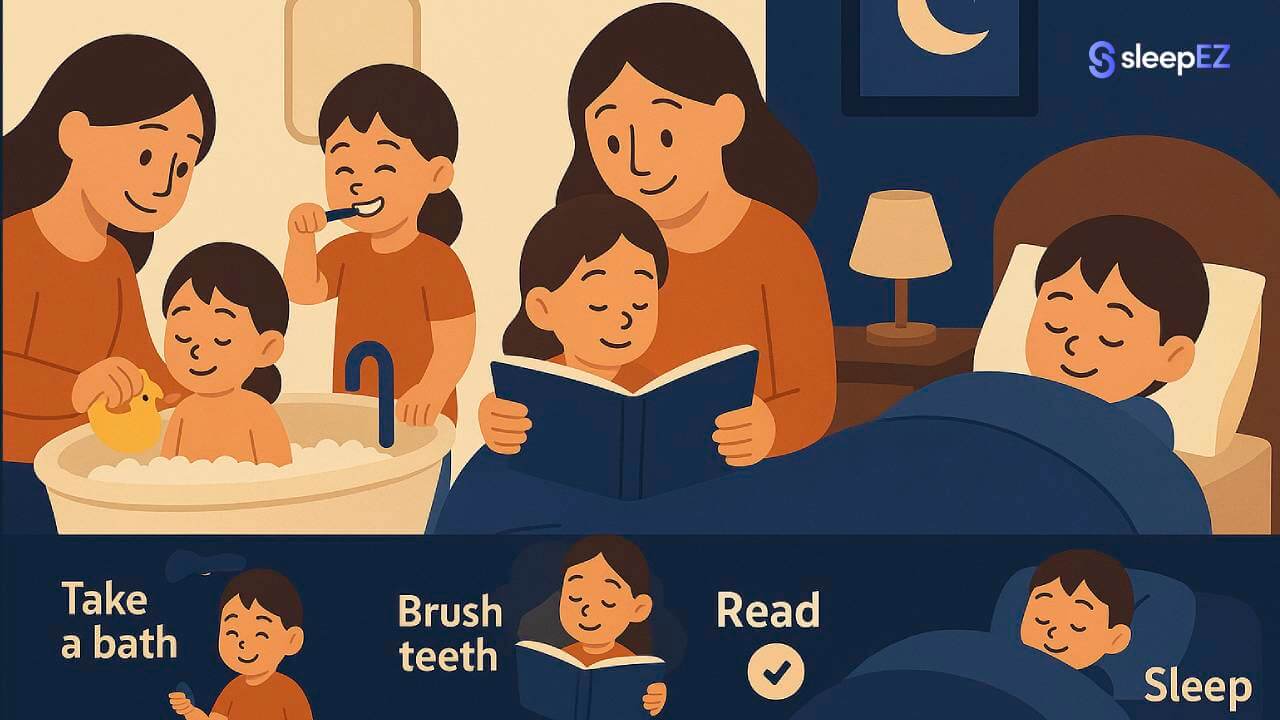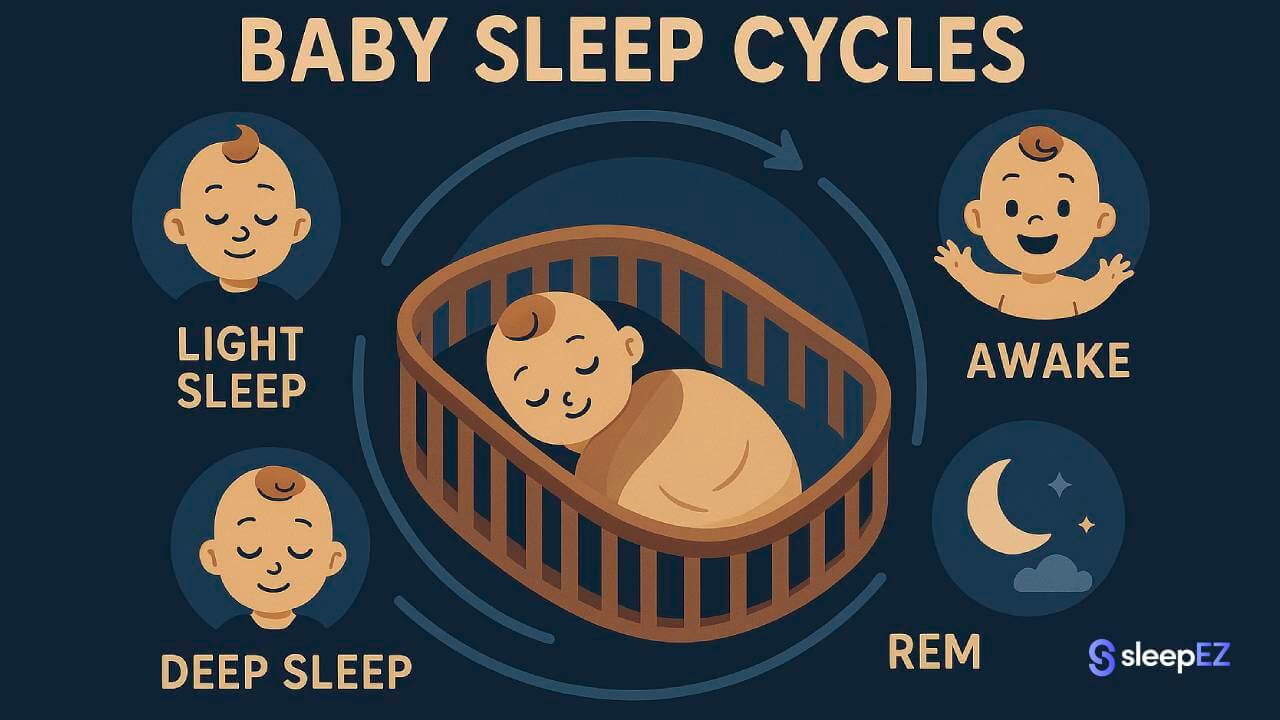Do you wake up at the slightest sound? Does a passing car's headlights or your partner's movement pull you right out of sleep? You're not alone, and you're not imagining it.
Being a light sleeper is a real pattern that affects millions of people. It's frustrating to watch others sleep through alarms and thunderstorms while you jolt awake at a door closing down the hall.
This guide explains the science behind why you're a light sleeper and gives you practical steps to get the deep, restorative sleep you need.
What Is a "Light Sleeper"?
A light sleeper is someone who wakes up easily from small disturbances. It's not a medical disorder. It's a common experience tied to how sensitive your brain is during sleep.
The technical term is having a low arousal threshold. Your brain stays more alert to outside stimuli like noise, light, or movement.
While someone else might sleep through a dog barking or a car door slamming, these sounds pull you out of sleep.
Common characteristics of light sleepers include:
- Waking up multiple times during the night
- Feeling tired or unrefreshed in the morning
- Being bothered by sounds others don't notice
- Envying people who can "sleep through anything"
- Taking a long time to fall back asleep after waking
What Causes Someone to Be a Light Sleeper?
Several factors determine whether you're a light or heavy sleeper. Some you can't control. Others you can manage.
Genetics and Brain Activity (Sleep Spindles)
Your genes play a significant role. Research shows that people who naturally produce more sleep spindles are better at blocking out noise during sleep.
Sleep spindles are bursts of brain activity that happen during Stage 2 sleep. They act like a protective shield, helping your brain ignore external disturbances.
If you were born with fewer sleep spindles, you're more likely to be a light sleeper. Studies published in Current Biology and other sleep research journals confirm this genetic component.
Lifestyle Factors
Stress and anxiety are major contributors. When you're stressed, your nervous system stays in a heightened state of alert. Your brain interprets this as a signal to stay vigilant, making you more reactive to sounds and movements during sleep.
People with anxiety often report hypervigilance at night. Their brain won't fully "shut down" because it's scanning for threats, even when there aren't any.
Other lifestyle factors include:
- High caffeine intake, especially in the afternoon
- Irregular sleep schedules
- Alcohol consumption before bed (it fragments sleep)
- Lack of physical activity during the day
Your Age
Sleep naturally becomes lighter and more fragmented as you get older. After age 60, most people spend less time in deep sleep and wake up more frequently during the night.
This is a normal part of aging, though it doesn't make it any less frustrating.
Why Being a Light Sleeper Is So Frustrating
To understand why being a light sleeper affects how you feel, you need to know how sleep works.
Every night, your brain cycles through four stages of sleep:
NREM Stage 1: Light sleep, the transition between waking and sleeping. You can wake up easily.
NREM Stage 2: Slightly deeper sleep. Your heart rate slows, and your body temperature drops. This is where sleep spindles occur.
NREM Stage 3: Deep sleep. This is the most restorative stage. Your body repairs tissue, builds muscle, and strengthens your immune system. It's very hard to wake someone from deep sleep.
REM Sleep: The dream stage. Your brain is active, processing memories and emotions. Your body is essentially paralyzed to keep you from acting out dreams.
You cycle through these stages multiple times each night. A full cycle takes about 90 minutes.
Here's the problem: being a light sleeper means you get interrupted. Every time you wake up, even briefly, you restart the cycle. These interruptions prevent you from spending enough time in Stage 3 (deep sleep) and REM sleep. Both are critical for feeling refreshed, repairing your body, and consolidating memories.
That's why you can technically sleep for eight hours but still wake up exhausted. The quality of your sleep matters as much as the quantity.
How to Sleep Better When You're a Light Sleeper
You can't change your genetics, but you can take control of your environment and habits. These strategies help you protect your sleep and increase your time in deep, restorative stages.
1. Follow Strict Sleep Hygiene
Sleep hygiene means creating consistent habits that support good sleep. For light sleepers, this isn't optional. It's the foundation.
Stick to a schedule: Go to bed and wake up at the same time every day, even on weekends. This trains your internal clock.
Get morning sunlight: Exposure to bright light within 30 minutes of waking helps regulate your circadian rhythm. It tells your brain it's daytime.
Limit caffeine: Caffeine has a half-life of 5-6 hours. If you drink coffee at 3 PM, half of it is still in your system at 9 PM. Cut off caffeine by early afternoon.
Avoid alcohol before bed: While alcohol might make you drowsy, it disrupts your sleep cycles and causes more awakenings during the night.
Exercise regularly: Physical activity improves sleep quality, but avoid intense workouts within 2-3 hours of bedtime.
Keep your bedroom cool: The ideal temperature for sleep is between 15-19°C. A cooler room supports the natural drop in body temperature that happens during sleep.
2. Reduce Stress Before Bed
Your brain needs time to transition from "alert mode" to "sleep mode." A wind-down routine signals that it's time to relax.
Try these techniques 30-60 minutes before bed:
Deep breathing exercises: Slow, controlled breathing activates your parasympathetic nervous system, which calms your body. Try the 4-7-8 technique: breathe in for 4 seconds, hold for 7, exhale for 8.
Progressive muscle relaxation: Tense and release each muscle group, starting from your toes and moving up to your head. This releases physical tension.
Read a physical book: Reading helps your mind shift away from daily stressors. Avoid screens, as blue light suppresses melatonin production.
Meditation or guided imagery: Apps like Calm or Headspace offer sleep-specific meditations that help quiet a racing mind.
Write down your worries: If anxiety keeps you awake, keep a notebook by your bed. Write down what's bothering you. This helps your brain "release" the thoughts instead of ruminating on them.
3. Create a Sleep "Sanctuary" to Block Disturbances
This is the most important strategy for light sleepers. Your goal is to create a protective bubble that shields you from your two main triggers: light and sound.
Solving for Light
Light is a powerful signal to your brain to wake up. Even small amounts of light can disrupt your sleep cycles.
Start with blackout curtains or shades. They block outside light from streetlamps, car headlights, and early morning sun.
For total darkness, an eye mask is a light sleeper's most effective tool. It blocks 100% of light, no matter where you are. A Bluetooth sleep mask offers an extra benefit: it blocks light while letting you listen to calming audio, white noise, or guided meditation. This addresses both light sensitivity and the stress reduction step at the same time.
Cover or remove any LED lights in your bedroom. Even the small glow from a phone charger or alarm clock can be enough to disturb sensitive sleepers.
Solving for Noise
Noise is the other main enemy. You have two strategies: blocking the sound or masking it.
Blocking (Silence): If you prefer total quiet, a good pair of silicone earplugs can create a comfortable seal against disruptive noises. They're effective against snoring partners, traffic, or noisy neighbors. Look for earplugs with a high noise reduction rating (NRR), typically 30-33 decibels.
Masking (Sound): Many people find complete silence unsettling. Your brain strains to listen for sounds in total quiet, which can actually make you more alert. A better option is to mask unpredictable noises with constant, soothing sound.
A white noise machine is perfect for this. It produces steady sound that covers up sudden noises like a door closing or a dog barking. These abrupt sounds are what jolt you awake. When they're masked by consistent white noise, your brain doesn't register them as threats.
Sound machine like the Hush+ Light Sound Machine offer multiple sound options that you can choose what works best for you. This is also why many parents use white noise machines for babies. It creates a consistent sound environment that promotes deeper sleep.
Some people prefer a fan for the same reason. It provides both airflow and consistent noise.
The Complete Sanctuary
The most effective approach combines multiple strategies:
- Blackout curtains + eye mask for light
- White noise machine or earplugs for sound
- Cool temperature (60-67°F)
- Comfortable mattress and pillows
- No screens or devices (or use night mode if necessary)
This creates an environment optimized for deep sleep, even if you have a naturally low arousal threshold.
When to Talk to Your Doctor
Most light sleepers can improve their sleep with environmental and lifestyle changes. However, you should see a doctor if:
You still feel exhausted after consistently following these strategies for 4-6 weeks.
You suspect sleep apnea: Signs include loud snoring, gasping for air during sleep, morning headaches, or extreme daytime fatigue. Sleep apnea is a serious condition that requires medical treatment.
You have chronic insomnia: If you struggle to fall asleep or stay asleep at least three nights per week for three months or more, you may have chronic insomnia. A sleep specialist can help.
Your sleep problems affect your daily life: If poor sleep is impacting your work, relationships, mood, or safety (like falling asleep while driving), seek professional help.
You have anxiety or depression: These conditions often disrupt sleep. Treating the underlying condition can dramatically improve your sleep quality.
A sleep study (polysomnography) can identify underlying issues like sleep apnea, periodic limb movement disorder, or other sleep disorders that might be contributing to your light sleep.
Conclusion: Take Control of Your Sleep
Being a light sleeper is common and often genetic. It's not a life sentence.
While you can't change your brain's natural sensitivity to disturbances, you can control your environment and habits.
By managing the triggers that wake you up (light and sound) and adopting practices that promote deeper sleep (stress reduction and sleep hygiene), you can significantly improve your sleep quality.
You don't need to do everything at once. Start by tackling your biggest trigger, whether it's light or noise, tonight. Then build from there.
Better sleep is possible. It just requires the right approach for your sensitive brain.
Start tonight: Identify your main sleep disruptor and address it with one of the strategies above. Your body will thank you tomorrow.




Leave a comment
This site is protected by hCaptcha and the hCaptcha Privacy Policy and Terms of Service apply.